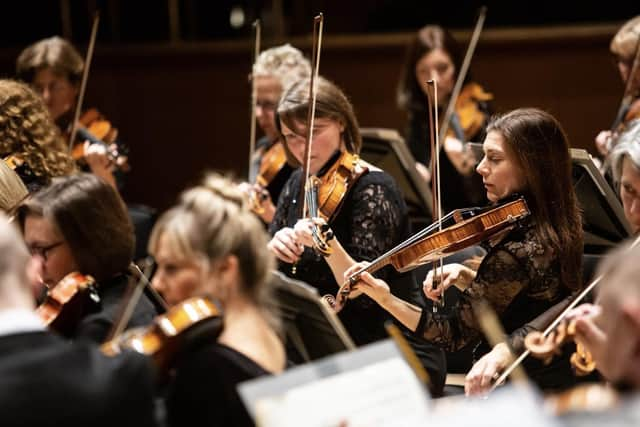Music review: RSNO, Jonathon Heyward and Denis Kozhukhin, Glasgow Royal Concert Hall
Despite yet another last-minute change of artists, there was good news. Instead of advertised pianist Joyce Yang and conductor Edo de Waart, the RSNO had secured the equally enticing Denis Kozhukhin and Jonathon Heyward in an unchanged programme. There was even a healthy audience, something the RSNO’s Glasgow concerts have struggle for since lockdown.
Heyward, who takes over musical directorship of the Baltimore Symphony Orchestra next year, opened with an unfamiliar piece of James MacMillan, his Larghetto for Orchestra, created five years ago out of a 2009 choir setting of the Miserere. As such, it is typical of the composer’s sumptuous choral idiom, a warmth of homely modality tinged with mildly evocative dissonance, driven by a shapely inevitability and gathering intensity.
Advertisement
Hide AdAdvertisement
Hide AdIt seemed inevitable, too, that early suggestions of MacMillan’s self-declared musical cipher, the gorgeous folk-like Tryst melody that has appeared in, or motivated, several of his works, should eventually blossom in full as a rapt and exhaustive hymn-like conclusion. Heyward’s calm demeanour reaped the required response from the RSNO, touching and naturally reposeful.


Grieg’s Piano Concerto changed the mood in an instant, Kozhukhin’s dash and daring adding a thrilling edge to its weathered familiarity. That not only kept Heyward on his toes – he mostly managed to second guess the Russian pianist’s restive quirks – but instilled in this arresting presentation an invigorating sense of renewal. Kozhukhin’s deep-rooted expressive tone was a potent, characterising feature.
Heyward’s key moment came in Beethoven’s Symphony No 7, which revealed him as a Beethoven interpreter of unadulterated good taste and easeful integrity. His pacing was safe and sensible, the shaping of the symphonic drama thoughtful and unforced. He may not have explored the work’s fullest volatility, but its polished countenance seemed the perfect foil to Kozhukhin’s dazzling Grieg.